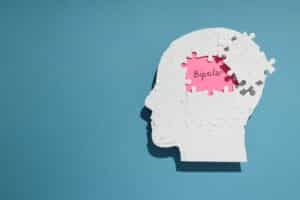Do you have anxiety that affects your day-to-day life? If you do, you’re not alone. Anxiety is the most common mental illness and affects over 40 million adults in the United States alone.
Even though anxiety is a mental illness, it can cause a lot of physical symptoms too. The physical symptoms of anxiety are disruptive and scary, which can add to your stress and cause panic attacks.
If this sounds familiar and you’re looking for help, you’re in the right place. Keep reading our page to learn more about understanding and coping with physical symptoms of anxiety.
Understanding Your Anxiety
Part of learning how to cope with anxiety is understanding what type of anxiety you’re experiencing and where it comes from. While it’s best to get an official diagnosis from a doctor, you can probably get an idea of what you’re dealing with by reading the descriptions below.
Generalized Anxiety Disorder
Generalized anxiety disorder is characterized by having excessive, uncontrollable anxiety that interferes with your daily life. People with generalized anxiety disorder tend to constantly worry, overthink most situations, and plan for the worst-case scenarios.
Panic Disorder
Panic disorder is characterized by having frequent and sudden panic attacks. These panic attacks are often unpredictable and severely disruptive to the person experiencing them. People with panic disorder often worry about when they’ll have another attack.
Social Anxiety
Social anxiety is when you frequently experience fear, worry, and embarrassment in social interactions. People with social anxiety often avoid situations where they’ll have to interact with groups of people, such as work, school, or any social gatherings.
Separation Anxiety
Separation anxiety is a disorder in which someone faces extreme worry and panic when separated from someone they love.
While this disorder is most common in young children leaving their parents, it can happen to anyone. People with this disorder often avoid leaving who they’re closest with, in fear that something terrible will happen while they’re apart.
Phobias
Phobias are types of anxiety disorders in which someone has an extreme fear of specific situations or objects, whether they pose a threat or not. Phobias can develop at any time in someone’s life and can sometimes indicate that they have other anxiety disorders as well.
Symptoms of Anxiety
The reasons for anxiety can be different for everyone, but the symptoms are pretty similar. Many of these symptoms are physical responses your body makes when you experience fear.
We’ve made a list of the physical symptoms of anxiety. If you’ve got anxiety, then many of these may seem familiar to you.
- Rapid or shallow breathing
- Trembling
- Excessive sweating
- Nausea and vomiting
- Diarrhea
- Heart palpitations
- Chest pain
- Insomnia
While all of these symptoms can be indicators of anxiety, they can also be signs of other health concerns. Don’t hesitate to reach out to your doctor if you feel that something is wrong.
Coping With Physical Symptoms of Anxiety
Anxiety can be difficult to live with, but fortunately, there are ways to manage it. Since everyone’s experience is different, not all of these coping mechanisms may work for you.
It’s important to keep an open mind and see what methods work best for you. In some cases, some of these methods may work better in conjunction with others.
Avoid Triggers
Once you’re experiencing symptoms of anxiety, it’s probably too late to avoid the trigger. However, once you’re aware of what triggers your anxiety, you can try to plan around avoiding it in the future. While this isn’t always possible, it can alleviate many stressful situations.
Breathe
Breathing exercises can be helpful when trying to manage your anxiety. One of the main physical symptoms you may experience is rapid and shallow breathing. By focusing on your breathing technique, you can ease the symptom and hopefully relax.
Distract Yourself
If you’re in a situation that’s triggering your anxiety, you should focus on something else to distract your mind. Consider listening to your favorite music or calling up a friend to take your mind off of things. There are even apps that you can get on your phone that have anxiety-reducing activities.
Tapping
Tapping, also known as psychological acupressure, is a natural method of coping with anxiety. This method involves tapping your fingers in certain places to apply pressure and send signals to the part of your brain that controls stress.
Exercise
Exercise has a lot of benefits to your overall health, but did you know that it can help manage your anxiety? Regular physical activity helps your body adapt to the stress, so when you’re handling stress from triggering situations you’re not as tense.
Exercise also works as a great coping mechanism to relieve stress, especially if you’re going outside. If you’re feeling anxious at home, consider going for a walk or even hitting the gym.
Therapy
Therapy is helpful for anyone, even those who don’t struggle with a mental health disorder. But if you’re experiencing regular anxiety, it could help to talk it out with a professional.
Cognitive Behavioral Therapy is a popular type of therapy that focuses on developing a positive or rational outlook from negative thoughts. Many therapists use this form of therapy to help patients manage their anxieties and fears.
Medication
If you’re struggling with anxiety and these methods don’t work for you, consider reaching out to your doctor to start some medication.
Anxiety can be treated through a variety of medications, including antidepressants, mood stabilizers, and SSRIs. Sometimes medication works best with other coping mechanisms as well.
Start Your Journey Today
Anxiety can be debilitating to live with, but it can be managed. Hopefully, our page taught you what you need to know on coping with physical symptoms of anxiety.
Your life doesn’t have to be consumed by fear and anxiety anymore. Reach out to us to learn more about our mental health treatment options. We offer evidence-based treatment for anxiety, depression, schizophrenia PTSD, and other mental health disorders.







